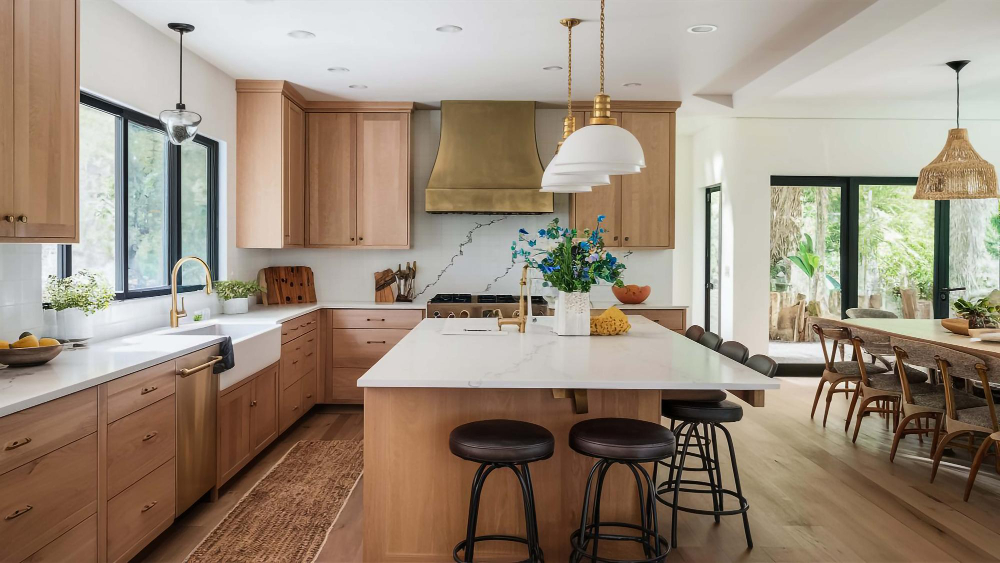Sell Your Home Faster: Why Depersonalizing Is Your Secret Weapon

As your real estate agent, my primary goal is to help you sell your home quickly and for the best possible price. We’ll talk about marketing, pricing strategy, and negotiations. But first, we need to focus on one of the most critical steps in preparing your property: depersonalizing. It’s a simple concept that makes a massive psychological impact on potential buyers.
When you put your house on the market, it’s no longer just your home; it’s a product. The goal is to create a space where buyers can walk in and immediately envision their own lives unfolding. They need to see themselves cooking in the kitchen, relaxing in the living room, and arranging their own furniture. Your personal items, as meaningful as they are to you, can create a mental barrier that prevents buyers from making that crucial connection. This guide will walk you through how to transform your cherished home into a blank canvas that appeals to the widest audience.
The Psychology of a Blank Canvas
Think about the last time you walked through a model home. Everything is stylish, clean, and completely impersonal. Professional stagers create an intentionally neutral, inviting atmosphere. It allows you to project your own tastes and lifestyle onto the space.
When a buyer sees your family photos on the wall or your child’s artwork on the refrigerator, they are reminded that they are guests in someone else’s house. It can make them feel like intruders and distract them from evaluating the home itself. By removing these personal touches, you invite them to mentally move in, which is the first step toward making an offer.
Your Step-by-Step Depersonalizing Checklist
Transforming your home might feel like a big task, but breaking it down into manageable steps makes it much easier. Let’s go through the key areas to focus on to create that buyer-friendly environment.
1. Pack Away Personal Photographs and Mementos
Packing away photos is often the most difficult step for sellers, but it is the most important. Walk through your home and gather all the personal photos. This includes framed family portraits on the walls, snapshots on your desk, and even the collection of magnets on your fridge.
- What to do: Carefully pack these items away for your new home.
- What to replace them with: Instead of leaving empty walls, hang neutral art. Simple landscapes, abstract prints, or even stylish mirrors can make a room feel complete without adding a personal story. Mirrors are especially useful as they can make a space feel larger and brighter.
2. Create a Kitchen That Inspires
The kitchen is frequently called the heart of the home, and it’s a major selling point for most buyers. They want to see a functional, spacious, and clean area where they can imagine preparing meals and entertaining guests. A cluttered kitchen can instantly signal a lack of counter space and storage.
- Clear the countertops: Remove almost everything from your counters. This includes the knife block, the spice rack, small appliances like toasters and blenders, and any decorative canisters. A coffee maker is often okay to leave out, but aim for a clean, clear surface.
- Organize cabinets and the pantry: Buyers will open cabinets and pantries. Don’t just shove items into the counters to clear them. Neatly stack dishes, organize food items, and discard expired goods. A well-organized pantry with some space suggests there is plenty of storage for the new owner.
3. Showcase Storage, Not Your Stuff
Closets are all about one thing: storage space. When a potential buyer opens a closet door and is met with an avalanche of clothes, shoes, and boxes, the message they receive is, “This home doesn’t have enough storage.”
- Edit your wardrobe: Pack away all off-season clothing and anything you don’t use regularly. A good rule of thumb is to aim for closets that are no more than two-thirds full.
- Organize what’s left: Neatly arrange clothes. Face all hangers in the same direction and group items by color. Store shoes on a rack instead of in a pile on the floor. This attention to detail creates a sense of order and highlights the functionality of the space.
4. Rethink Your Furniture Layout
You’ve lived in your home and arranged the furniture for your family’s comfort and lifestyle. For selling, however, the goal is different. You want to maximize the perceived size of each room and ensure there is a clear, easy path to walk through.
- Less is more: Too much furniture, or pieces that are too large for the room, can make a space feel cramped. Remove any unnecessary items. This might mean taking out an extra armchair, a bulky ottoman, or a secondary bookshelf.
- Define the space: Arrange the remaining furniture to create inviting conversation areas and clear traffic patterns. Pull furniture away from the walls to create a more open feeling. The goal is to show off the room itself, not just how much stuff it can hold.
From Your Home to Their Future
Selling your home is an emotional process. You’re not just selling a structure; you’re letting go of a place filled with memories. However, it’s helpful to reframe your mindset. You are preparing this house to become the backdrop for another family’s future memories.
Each item you pack away is an invitation for a buyer to write their own story. By presenting a clean, neutral, and welcoming space, you are not erasing your past; you are paving the way for the home’s future. As your agent, I have seen time and again how these simple changes can lead to more interest, better offers, and a faster sale. Let’s work together to get your home ready for its next chapter. Mary Tarrant (928) 277-6404.
The “Ick” Factor: 7 Things Turning Buyers Away at the Door

Imagine walking into a potential dream home. The photos online were stunning. The curb appeal is decent. But the moment you step inside, something feels off. Maybe it’s a smell you can’t place, or a room so packed with furniture you have to shimmy sideways to get through. As a Realtor, I see this happen constantly. I watch the excitement drain from a buyer’s face in real-time.
Selling a home is about selling a feeling. You aren’t just selling four walls and a roof; you are selling the idea of a future life. When buyers encounter friction—whether it’s sensory overload, grime, or clutter—that vision of the future gets blurry.
In my years of showing homes, I’ve compiled a mental list of the biggest “turnoffs” that kill deals before they even start. If you are preparing to sell, this is your insider guide to what buyers are actually thinking when they walk through your door, and more importantly, how you can fix it.
1. The Nose Knows: Unpleasant Odors
Nothing stops a buyer in their tracks faster than a bad smell. It is the very first thing people notice, often before they even register the paint color or the hardwood floors. Our sense of smell is directly linked to the emotional center of our brains. If a house smells bad, the buyer immediately forms a negative impression of the property.
The Culprits
The most common offenders are cigarette smoke, pet odors, dampness, and strong cooking smells. Sellers often go “nose blind” to these scents because they live with them every day.
- Pets: You love your dog, but a buyer doesn’t love the smell of wet fur or a litter box that’s “mostly“ clean.
- Dampness: Musty smells suggest mold or water damage, which screams “expensive repairs“ to a nervous buyer.
- Artificial Scents: Trying to mask odors with heavy plugins or candles often backfires. A house that smells like a frantic explosion of “Tropical Breeze“ makes buyers wonder what you are hiding.
The Fix
Deep cleaning is non-negotiable. Wash all soft surfaces, including curtains and carpets. If you smoke indoors, you may need to repaint and prime with odor-blocking primer. Before a showing, open windows to let in fresh air. The best smell a house can have is “clean.“
2. Clutter: The Space Killer
I have walked into 3,000-square-foot homes that felt like tiny apartments because every surface was covered. Buyers lack imagination. When they see your collection of ceramic frogs, stacks of magazines, or oversized furniture, they can’t see the room’s potential. They see a lack of space.
Why It Matters
Clutter makes rooms look smaller. It also signals to buyers that the house lacks storage. If your closets are bursting at the seams, the buyer assumes their stuff won’t fit either. Furthermore, personal clutter makes it hard for buyers to picture themselves living there. They feel like intruders in your home rather than future owners of it.
The Fix
Adopt the rule of 50%. Aim to remove 50% of the items from your shelves, countertops, and closets. Rent a storage unit if you have to. Clear off kitchen counters completely, leaving only one or two decorative items. The goal is to create open, airy spaces that allow the eye to travel freely across the room.
3. The “Dungeon“ Effect: Poor Lighting
Lighting is the unsung hero of real estate. A dark home feels depressing, small, and uninviting. I’ve shown homes at 1:00 PM that felt like midnight because of heavy drapes and low-wattage bulbs.
The Problem
Dark corners hide your home’s best features. Buyers want bright, cheerful spaces. If they have to fumble for light switches or strain to see the kitchen backsplash, they are already mentally checking out. Burnt-out bulbs are a minor annoyance that sends a primary negative signal: “This home hasn’t been maintained.”
The Fix
This is one of the cheapest upgrades with the highest ROI.
- Open everything: Before a showing, open every blind and curtain.
- Upgrade bulbs: Swap out dim, yellow bulbs for bright, soft-white LEDs. Make sure every fixture has working bulbs.
- Add lamps: If a room lacks overhead lighting, add floor or table lamps to brighten dark corners.
4. Deferred Maintenance: The “Money Pit“ Fear
Buyers are detectives. They are looking for reasons to offer less money or walk away. Minor, visible issues suggest larger, invisible problems. A dripping faucet, a cracked window pane, or peeling paint might seem minor to you, but to a buyer, they are red flags.
The Psychology
When a buyer sees a water stain on the ceiling (even if the leak was fixed years ago), they think “mold.“ When they see a loose door handle, they wonder what else is broken inside the walls. They start mentally tallying up the cost of repairs and usually overestimate it by double or triple.
The Fix
Walk through your home with a critical eye, as if you were the buyer. Fix the leaky faucet. Tighten the loose doorknob. Paint over scuff marks. Caulk the bathtub. These small weekend projects build the buyer’s confidence that the home has been well cared for.
5. Over-Personalization: It’s Not Your House Anymore
This is a tough one for many sellers. You love your bright purple dining room and your wall of family vacation photos. But when you put your house on the market, it ceases to be your home and becomes a product.
The Distraction
Specific decor choices can be polarizing. A buyer who hates purple won’t be able to stop staring at the walls, missing the beautiful crown molding entirely. Similarly, too many personal photos or religious/political items can make buyers uncomfortable. They spend their time looking at your life rather than at the house.
The Fix
Neutralize. Paint walls in soft, neutral tones, such as warm whites, grays, or beiges. These colors reflect light and appeal to the broadest range of tastes. Pack away the family photo gallery and the specialized memorabilia. You want the buyer to look at the architecture and the view, not your family tree.
6. The Curb Appeal Letdown
We often talk about love at first sight in real estate. It happens in the driveway. If a buyer pulls up and sees overgrown weeds, peeling paint on the front door, or a driveway full of cracks, they start the showing with a negative bias.
The First Impression
I have had buyers refuse to even get out of the car because the exterior looked neglected. The outside sets the expectation for the inside. If the exterior is messy, they assume the interior is dirty too.
The Fix
You don’t need to landscape the Gardens of Versailles. Just tidy up.
- Mow the lawn and trim the hedges.
- Power wash the driveway and siding.
- Paint the front door a fresh, welcoming color.
- Put out a new welcome mat and maybe a potted plant.
- Make sure the house numbers are visible and clean.
7. The Hovering Seller
This is the only item on the list that isn’t physical, but it is just as damaging. Occasionally, a seller wants to stick around for the showing to “point out the features.“ Please, for the sake of your sale, don’t do this.
Why It hurts
When the seller is present, buyers feel awkward. They can’t speak freely. They won’t open closets or look inside the pantry because they feel like they are snooping. They rush through the tour to get out of the uncomfortable situation. You want buyers to linger, to sit on the couch, and to imagine living there. They can’t do that if you are standing in the kitchen watching them.
The Fix
Leave. Take the dog and go for a walk, run an errand, or visit a neighbor. Let your agent do their job. If there are specific features you want to highlight, leave a printed list on the kitchen counter.
Final Thoughts: The Goal is Neutrality and Cleanliness
Selling a home requires a shift in mindset. You have to stop viewing it as “your space“ and start treating it as a valuable asset you are marketing to the public. The homes that sell the fastest and for the most money are the ones that allow buyers to project their own dreams onto the space.
By addressing these seven turnoffs, you aren’t just cleaning up; you are removing the barriers that stop buyers from saying “yes.“ Take the time to prep, de-clutter, and neutralize. Your bank account will thank you at the closing table.
Mary Tarrant
928-277-6404
Mold May Be Hiding In Your Home

For a healthy home, monitoring and eliminating mold is crucial. Unfortunately, mold in your home can be sneaky and creep up on you when you least expect it. Commonly, household mold develops because of water damage or a damp surface. Spores are known to remain dormant until they have the moisture and nutrients necessary to bloom.
Below, I have created a list of the top mold spots that are often missed in a house:
1. Damp basements or crawl spaces: Basements meet all the qualifications for a perfect growth area for mold: they are dark, close to the earth, and hidden from view. Ensure that you create proper drainage and ventilation to prevent mold growth.
2. Shower stalls and bathtubs: Again, mold loves humid areas. When you shower, the warm moisture creates the perfect environment for mold to grow. The bathroom is the most common hotspot for mold! Check toilet seals, wet walls, shower curtains, sinks, and ESPECIALLY the shower. To prevent mold from penetrating the tiles, ensure your caulking and grout are in good condition.
3. Kitchens: Since kitchens are typically humid (think about all the cooking and dishwashing), they’re susceptible to mold growth. A slow leak can go undetected and be a breeding ground for mold. A leak under the sink, behind the fridge, or around the dishwasher can likely lead to a mold problem. Try to check these areas monthly.
4. Refrigerators: The condensation that forms inside your fridge can create a breeding ground for mold.
5. Air conditioners: These units provide the perfect conditions for mold to grow – warm, moist, and often located in a dark place.
6. Houseplants: Believe it or not, houseplants can also be a source of mold. If they’re not getting enough light, mold can grow on the leaves and soil.
7. Carpeting: Mold can become active in carpeting due to flooding, moisture from concrete foundations, or spills. The carpet that harbors mold will need to be replaced.
8. Windows: Condensation can build up on your windows as temperatures fluctuate, and spores hanging around can gradually take hold and bloom into a black, spotty mess. Mold is more common on shaded windows or windows that are often covered by curtains.
The best way to locate mold is to look for leaks in pipes and dry out wet areas in your home. To help prevent mold growth, consider adding an air purifying system.
If you suspect that mold may be present in your home, it’s essential to take action immediately. Contact a professional mold removal company to assess the situation. They’ll be able to safely and effectively remove any mold that’s present. Mold can cause serious health problems, so it’s best not to take any chances.
Call Mary Tarrant 928-277-6404 for your real estate needs!


 Facebook
Facebook
 X
X
 Pinterest
Pinterest
 Copy Link
Copy Link








